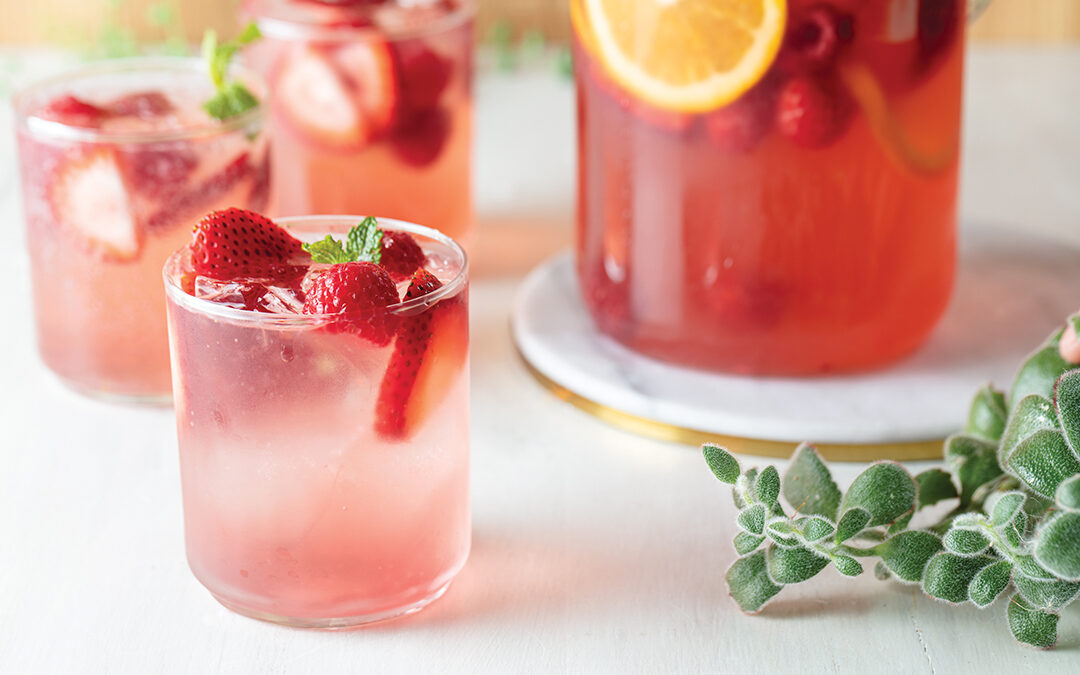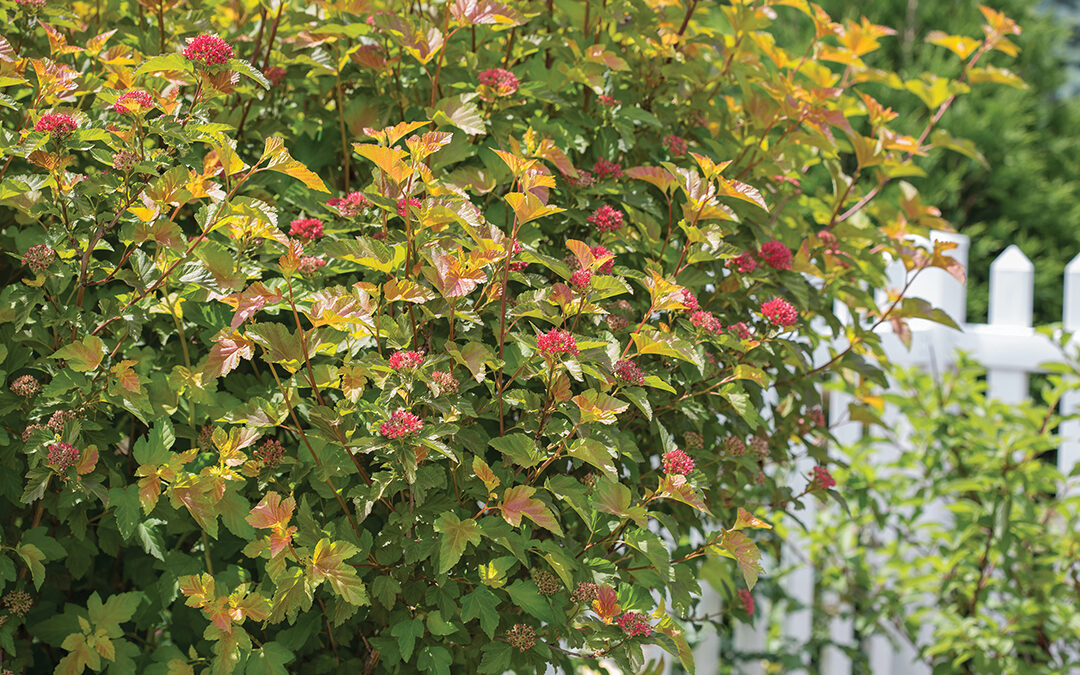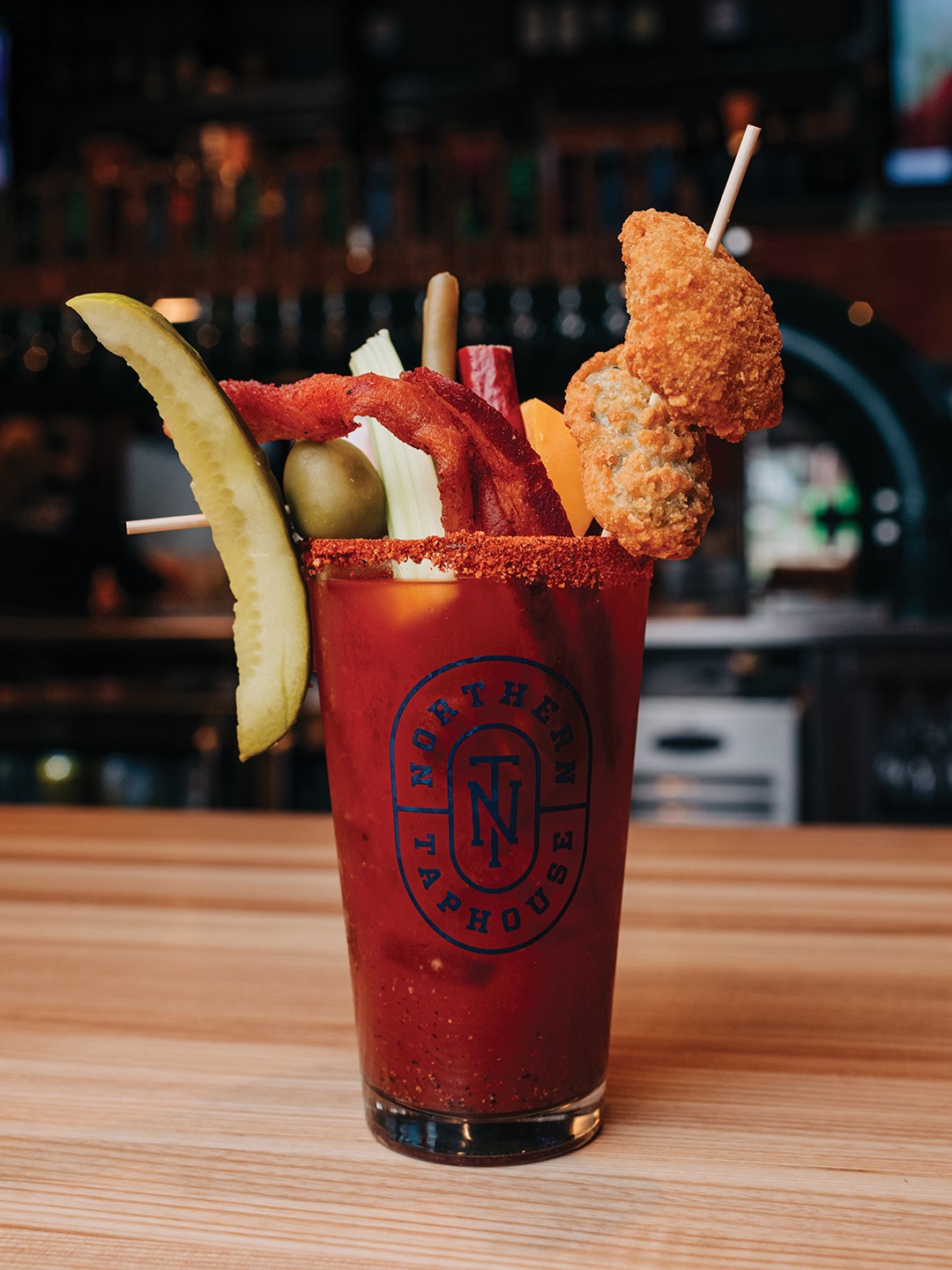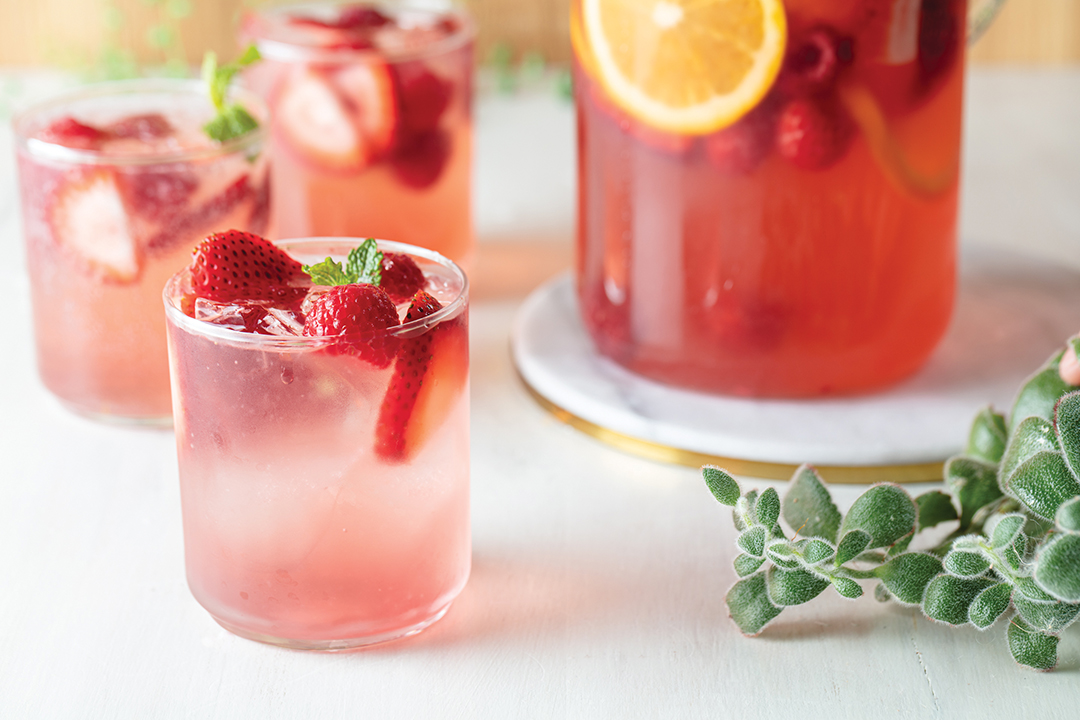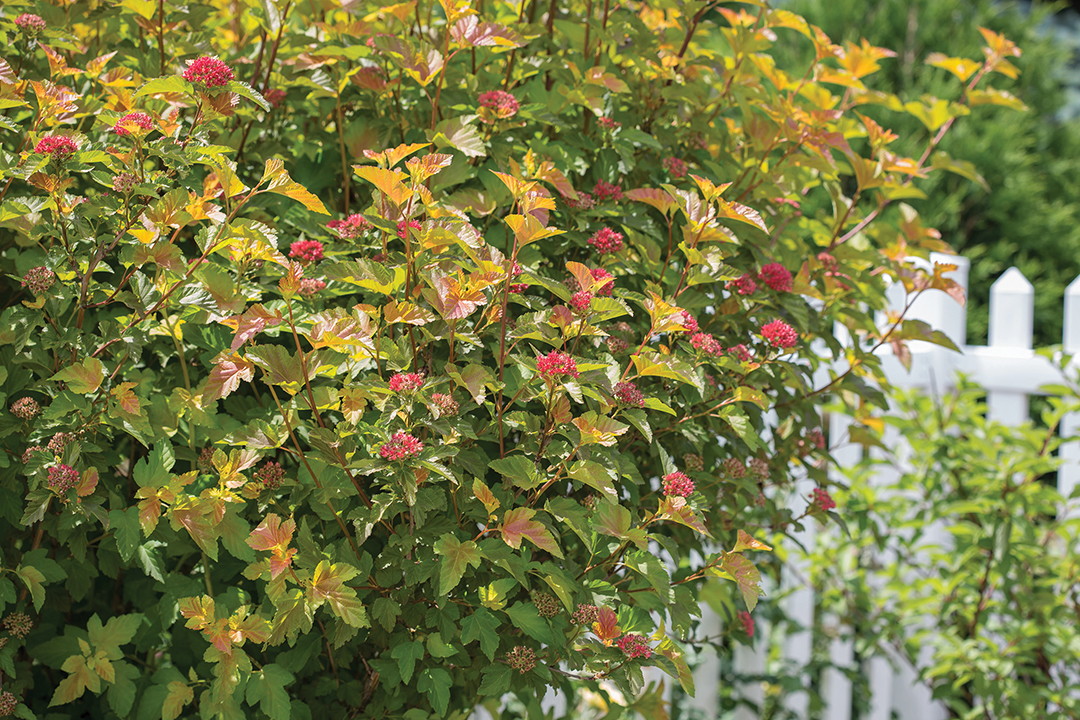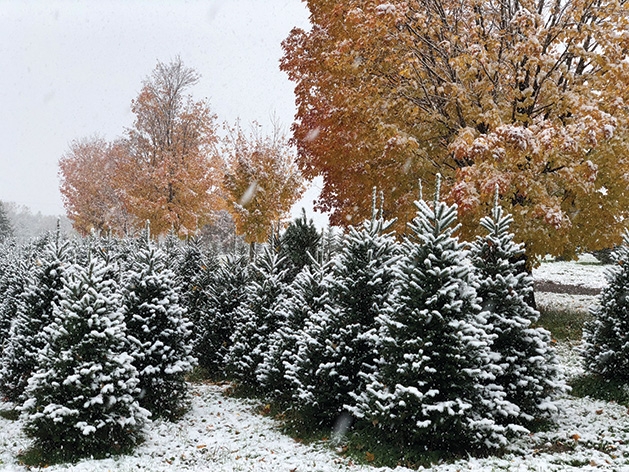
PHOTO BY: KRUEGER FAMILY; TATE CARLSON
The Kruegers work year-round to ensure their Lake Elmo Christmas tree farm
Though the Krueger’s Christmas Trees farm is on its second location, the passion for growing the festive trees remain untouched. Neil and Deb Krueger, alongside their son John, are proud to practice sustainable farming and environmental stewardship, and they work year-round to ensure the farm offers the best of the best Christmas trees.
The current Lake Elmo farm has been in the family for more than a century, but the land wasn’t originally used as a Christmas tree farm. Dating back to 1916, Neil’s grandparents used the land for cattle grazing and dairy farming, but after his grandparents retired in the 1940s, the land was sold to Neil’s uncle.
The farm again became purchasable real estate in the 1980s, and though Neil and Deb were Stillwater residents, it was a no-brainer to purchase the land and continue the family’s farming legacy. The couple officially purchased the farm in 1983 and began planting Christmas trees right away—while still managing Neil’s childhood Christmas tree farm in Stillwater.
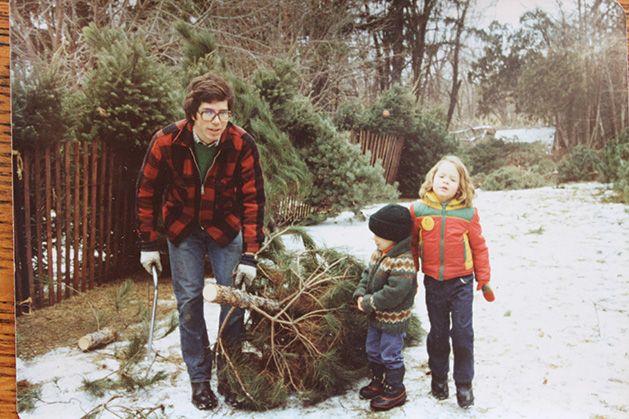
Growing up on a Christmas tree farm in the 1950s, Neil describes it as tedious work. “When I was young, we worked on the tree farm, planting, shaving and selling trees,” he says. “I didn’t like it at the time, but as I got older, I realized it’s nice.”
Although the original tree farm location in the St. Croix Valley is now retail space, his birthright, as some may say, continues in Lake Elmo at Krueger’s Christmas Trees.
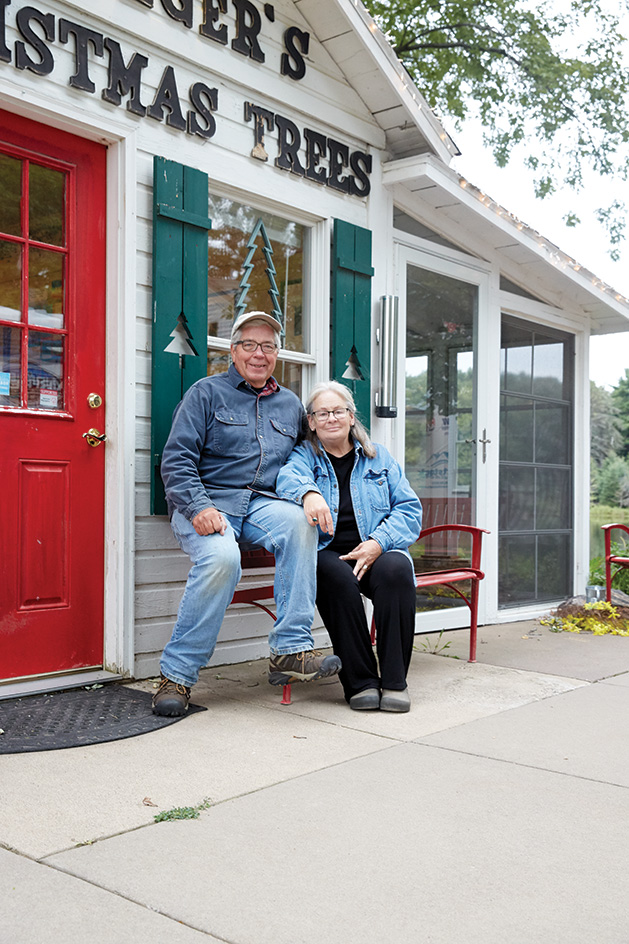
“Our emphasis on the farm is education and environmental stewardship,” Deb says. “How we farm, what we farm and being organic is important.” The Krueger farm offers tours for grade schools and donates to different organizations each year. In 2019, the Kruegers donated over $4,000 to Save the Boundary Waters. They’ve also donated to the Red Cross, Doctors Without Borders and Wilderness Inquiry.
“It’s always very successful,” Deb says. “We’re concerned about the environment. It’s not just about planting a single crop, but about the entire environment: the land, the animals and the crops.”
Each season, the Kruegers rotate the crops to enrich the soil, mulch using the chipped-up Christmas trees that sold the previous season and plant several thousand new Christmas trees. A typical tree takes 8–10 years to fully grow, and, if lucky, will have a 90 percent survival rate.
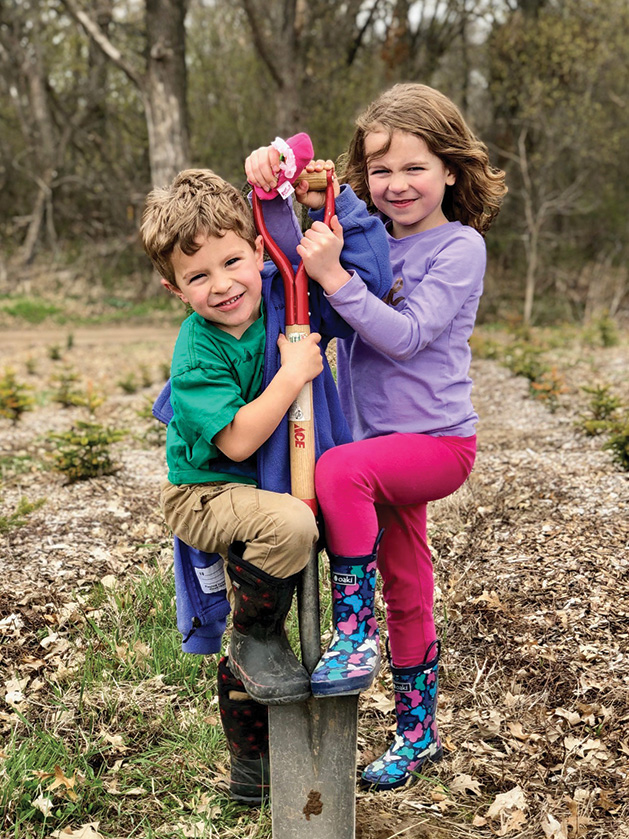
And because the farm uses few to no chemicals, most of the work is done by hand, including mowing, trimming and mulching. “Since we’ve been growing trees, we’ve never used pesticides,” Neil says. “It’s because of the diversity of our land, we have ponds and wetlands, and the variety brings in more animals and birds.”
“We live on the land, and it’s a gift. It’s sacred,” Deb says. “We have a Native American burial ground on our land, so we’re very respectful to the animals. We and the land are very interconnected.”
The Kruegers are happy to welcome customers into the fields to cut their own tree and also offer precut trees. “Shaking, wrapping, tying it to your car, a fresh cut and the tax is all included in the posted price, which is unique,” Neil says. The farm usually also welcomes guests into their warming house for cider and visits with Santa, evening shopping and artist-made Christmas ornaments, and free wagon rides.
For seasonal hours, visit kruegerschristmastrees.com. Check the website for updates regarding COVID-19.
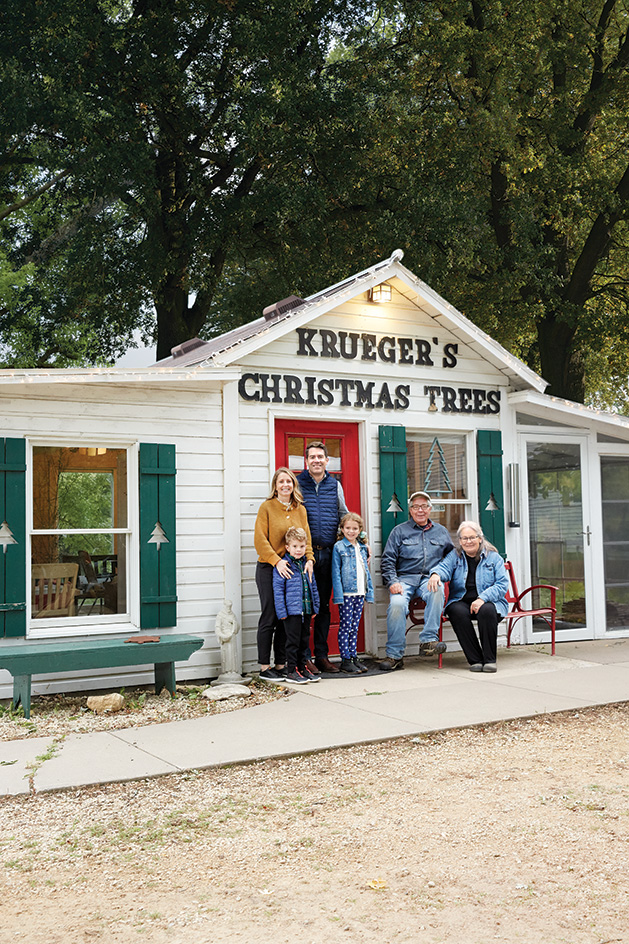
Christmas Tree Care
There’s much more to a fresh Christmas tree than decorating it with twinkling lights and memorable ornaments. Here are the Krueger’s Christmas tree care tips:
- Before you take your tree home, make sure there’s a fresh cut at the base—it opens the pores for easier water absorption.
- Use warm tap water in the stand, and always keep the tree watered. If the water runs out, remove any lights and mist the tree like a houseplant; also, drill a hole in the base for water absorption.
- Always keep the tree away from heat to avoid a potential fire and to ensure the tree won’t dry out.
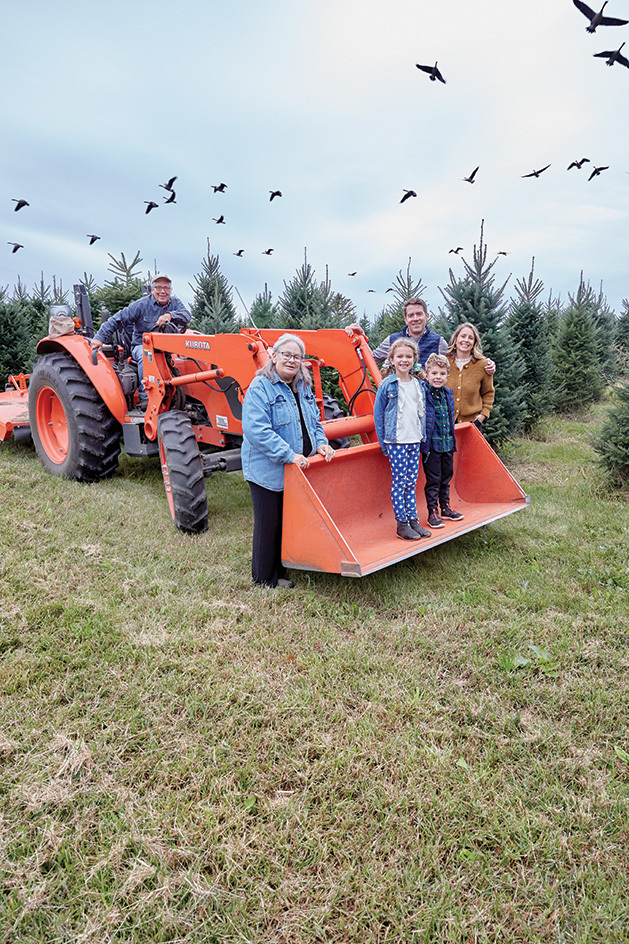
Be Green!
Typically, Christmas trees are disposed just a few days or within weeks after the big holiday, but the Kruegers recommend keeping them until the early spring. “You can put the tree on your deck or in your backyard for the birds, it will last all winter,” John says.
The tree acts as a house for all types of critters. Deb adds, “There are lots of uses for your Christmas tree. The tree can help with pond erosion … Or a snow fence in your yard.”
If you’re unsure of where to bring your Christmas tree, it can be recycled and chipped up to use as mulch on farms. “We chip up the trees and put them back in the Christmas tree fields as mulch,” Deb says. So instead of tossing out the decorative tree just a week after the holiday, consider using it all winter, and return it to the land come spring.
Krueger’s Christmas Trees
10970 43rd St. N., Lake Elmo
Facebook: Krueger’s Sprucegate Christmas Tree Farm

